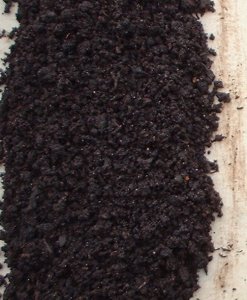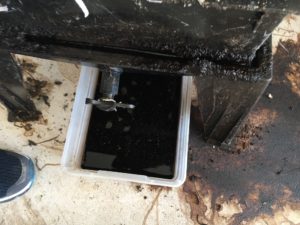Hello fellow readers, Yay! John from Belvidere asked about worm composting -what fun! The process is called vermicomposting. It takes very little space, and there’s little or no odor. Best of all, a couple of pounds of worms can make nutrient-rich compost out of your trash in about 60 days right in your basement! Any 40 to 80 degree dark and dry space works, so even your bedroom will do.
Choose a container based on your amount of food waste. You can compost fruit and vegetable scraps, crushed eggshells, tea bags, and coffee grounds. Skip citrus, meats, dairy products, oily foods, and grains because of smells, flies, and rodents problems. Your worms need about 1 square foot of surface area to digest each pound of waste per week. So a two-by-two-foot worm bin can handle about 4 pounds of scraps a week.
Whether a plastic tub, recycled wooden drawer, or one designed for worm composting (they’re pricey), your container should be between eight and twelve inches high with several holes in the bottom for drainage. Raise the bin on bricks or wooden blocks, and place a tray underneath to capture moisture used as liquid fertilizer.
Fill your bin about three-quarters full with either shredded newspaper, chopped dry leaves or straw, sawdust, or leaf mold and moisten to the texture of a wrung-out sponge. A combination of bedding material is even better. Add a couple of handfuls of sand or soil to provide the necessary grit for the worm’s digestion. Then add your food scraps-always under the bedding material. Next, come the worms. Specifically Red Wigglers, Eisenia foetida; the most voracious eaters of the earthworm family. They can consume half their weight in food each day, and you can buy them through garden supply catalogs. Experts recommend starting with 2 pounds of worms for a 2 or 3 person household. Place a sheet of dark plastic or burlap loosely on the bedding to conserve moisture and provide darkness for your worms.

Vermicast, also known as worm castings, is the end-product of the worm’s breakdown of organic matter. Yup, it’s the worm poop (or is worm manure if you care to be more ‘proper’)—picture compliments of Wikipedia.
Next week we’ll talk about harvesting and preventing escapees. Not to worry, it’s unlikely, and they won’t go far. But maybe rethink the bedroom for your bin. Garden dilemmas? AskMaryStone@gmail.com
Click on the link for Worm Composting Part 2




